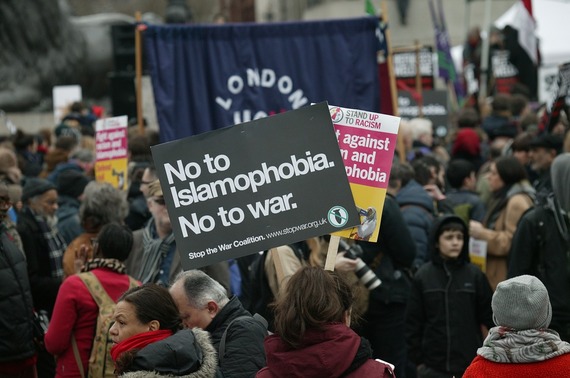I received an angry note from a woman who objected to our special prayer service following the election. She pointed out that we did not do this after President Barack Obama was elected. She asks important questions: What makes this election unique, and what should we do next?
People are in pain today. If you haven't heard from someone who feels this, then you need to talk to more people. Young people in particular have been hurt. My wife is a law professor who works especially closely with people of color and those who come from disadvantaged backgrounds. She has undocumented students who are so afraid of being deported that they have resolved not to answer any knocks at the door. They have wondered if we need some kind of 21st-century Underground Railroad to protect immigrants. She has had previously confident African-American men staring at her in disbelief having just concluded that half of the country believes overt racism is totally acceptable behavior.
A Muslim friend says he feels safer in Gaza than Florida. Women with tears in their eyes have told me how unsettling it is to have a president in the White House who sexually assaults women. Parents worry that not paying our taxes sets a terrible example and that bullying, dishonest, demeaning and unkind language has become our new standard.
I especially grieve that fear and resentment led so many Christians to overlook their scruples. This season, we are confronted by the severity of spiritual sickness in our society. Increasing inequality, the lack of meaningful work, an inability to give our lives to something that matters, discrimination and various feelings of unfairness, shame and disenfranchisement lie behind record levels of mental illness and substance abuse.
Christianity is not first an identity that pollsters use to predict voting blocks. It is not a free pass to feel superior to God's other children. It is a way of being human based on the ongoing spirit of Jesus which we experience in his teachings. Being Christian means honoring the dignity of all other people and rejoicing in the blessing of creation.
At the heart of Jesus' teaching lies a simple idea. Alongside the world of power politics, where might makes right and political figures like the Roman Emperor use fear to coerce others, Jesus has planted seeds for the Kingdom of God. This kingdom is not something that happens when you die. It is not just for Christians. In the Kingdom of God every person has inalienable dignity and there is enough for all, even all creation. This basic conviction leads Jesus to some challenging conclusions. When we would do anything for invulnerability, prestige and power over others Jesus teaches a completely different way of experiencing the world. He says, "Blessed are the meek ... Blessed are those who hunger and thirst for righteousness ... Blessed are the merciful ... Blessed are the pure in heart... Blessed are the peacemakers ... Blessed are you when they persecute you for righteousness' sake."
This kind of vulnerability frightens us. But Jesus points out that having the faith to suffer for the sake of goodness is far better than becoming the kind of person who lives by exploiting others.
Jesus tells his disciples that the rulers of the nations lord it over them and their greatest ones are tyrants. "It will not be so among you; but whoever wishes to be great among you must be your servant, and whoever wishes to be first among you must be your slave"
Let me offer three suggestions: First, recognize the special love that Jesus has for all who are most vulnerable and be compassionate. Find those who need you and care for them. Pray for them and with them. Second, in the words you use to describe what happened this week, do not forget that every human being has inherent worth as a child of God. Jesus insists that we need to love even our enemies.
Finally, remember that God is the one who is ultimately in charge. In the larger scheme of things, despite setbacks, Caesar's Empire is retreating before the advance of the Kingdom of God.
